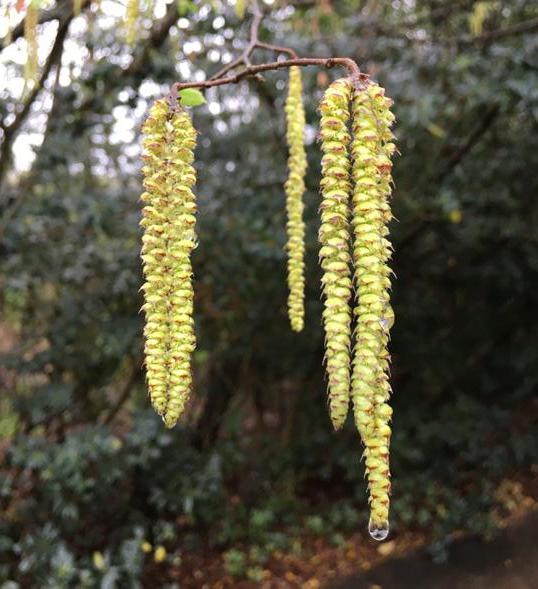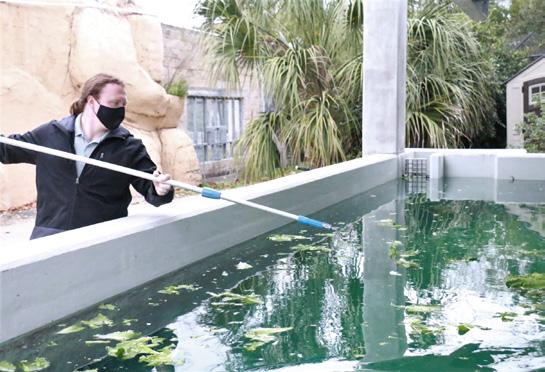
2 minute read
Gardener's Corner
GARDENER'S CORNER Why Do We Plant Trees?
By Chris Dailey, Horticulture Manager
Advertisement
Japanes Maple located in the Asian Bamboo Garden
Have you ever planted a tree? These large plants are critical to our world and provide many benefits to us, yet we often overlook their importance. There are many reasons to consider planting a tree.
Often, we plant trees for simple or selfish reasons. We like the way a tree looks, for the pretty flowers, uniquely shaped leaves, textured bark, or artistic form or structure. We plant a tree for the fruit that we can eat, the shade that it provides, or to hang a swing on. Though these are great reasons, there is more to understand about the advantages of trees. Most people know the basic relationship between trees and animals. We may know squirrels eat acorns from oak trees and many birds eat berries from holly trees. But did you know insects that feed on trees are an important part of many bird diets, especially baby birds? Where trees are missing, we notice bird diversity declines dramatically. In countless ways, trees provide habitat for wildlife: a location and parts for building nests, a structure for cavity dwelling, a perch for roosting, an escape from predators—the list goes on. Birds, mammals, reptiles, fish, and insects all rely on trees for these habitat opportunities. Additionally, trees planted in urban areas help to connect natural areas, giving wildlife more space and opportunities to thrive.


American hophornbeam (Ostrya virginiana) located near the lion exhibit.
There are also many environmental reasons for planting trees. From middle school science class, we understand that plants produce oxygen for us to breath, while removing carbon dioxide from the air. Plants, especially trees, store this carbon and hold onto it for as long as it lives. This is a vitallyimportant environmental role that trees excel at. Trees also help to control the erosion of soil. Wind and water are good at moving the soil, and that is a problem. Tree roots help to hold soil in place and tree leaves and limbs deflect wind and rain drops that cause erosion. Trees also play a vital role in water cycles, clean air, and temperature cooling. Finally, there are social benefits to planting trees. Many studies have shown that children’s emotional and cognitive development improve when they spend time in green spaces including trees. Documentation supports that trees, especially mature ones, add to property value and community enhancement. Overall, it seems we are increasingly accepting that when we spend time among trees, we are calmer, happier, and mentally healthier. In short: trees are invaluable. Consider planting one (or many) when and where you can.











